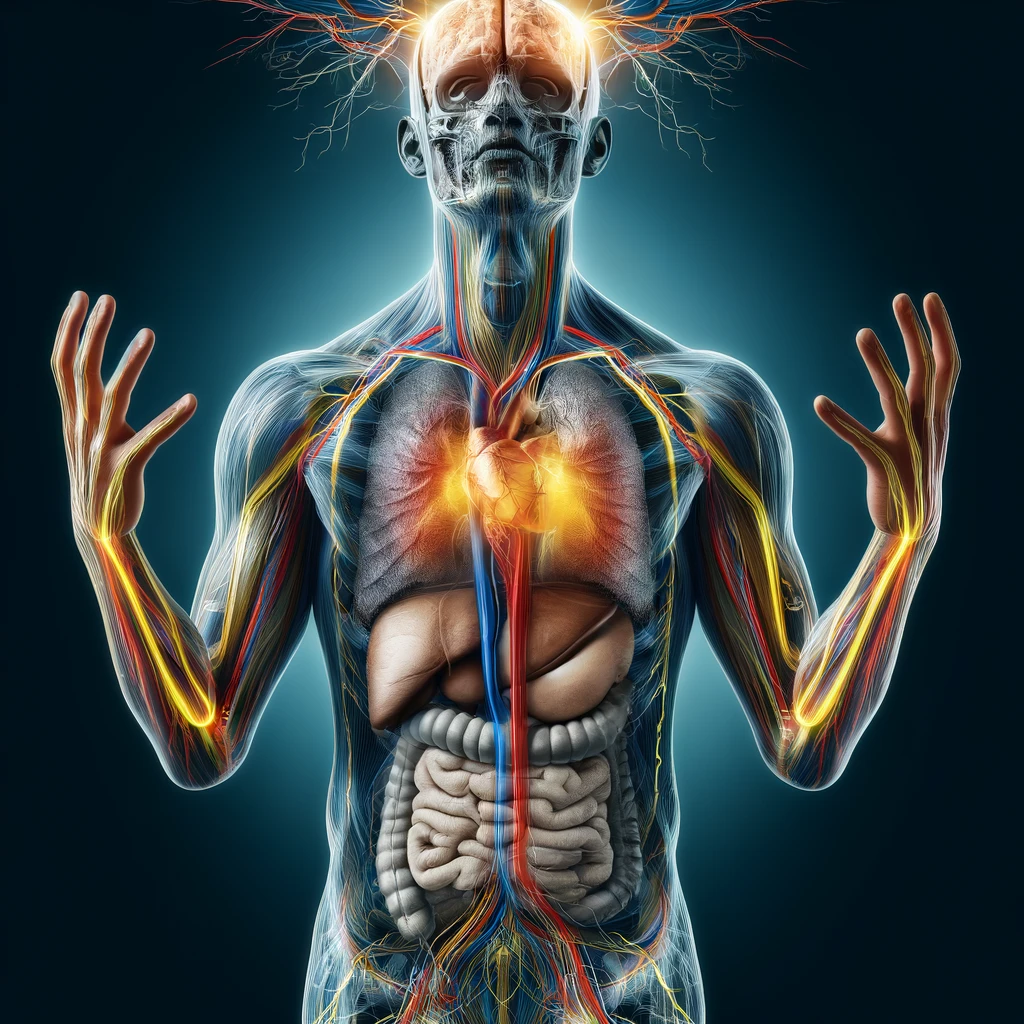In today’s fast-paced world, stress has become a commonplace companion for many of us, impacting our health, productivity, and overall quality of life. Stress can be overwhelming, whether it’s the pressures of work, relationships, or daily responsibilities, making it crucial to learn effective management techniques. Managing stress isn’t just about coping; it’s about thriving. Understanding stress and implementing strategic techniques can reduce its impact and enhance well-being.
This article will explore a range of methods—from physical exercises to mental adjustments and lifestyle changes—that can help you manage and reduce your stress levels. Our goal is to equip you with practical tools and insights that you can apply to live a calmer, more balanced life.
Understanding Stress Management
Stress is the body’s response to any demand or challenge. When you perceive a threat or a significant challenge, your body’s automatic response is a rapid chain of physiological changes known as the ‘stress response’ or ‘fight-or-flight’ response. While stress is a natural reaction meant to protect and keep us alert, prolonged stress can become a chronic condition that may lead to numerous health problems, including heart disease, depression, and a weakened immune system.
Types of Stress
There are primarily two types of stress:
Acute Stress: This is the most common form of stress. It comes from the demands and pressures of the recent past and anticipated demands of the near future. Acute stress is short-term and directly related to the immediate situation or event, causing reactions that can be thrilling and exhausting.
Chronic Stress: This type of stress grinds away over a long period. It can stem from unending pressures that seem too much to handle, where relief seems far away. It’s the stress of poverty, dysfunctional families, being trapped in an unhappy marriage, or a despised job.
Effects of Stress on the Body
Stress affects various body systems, including:
Nervous System: When stressed, your body releases stress hormones, which prepare the body to act by making the heart pump faster, blood pressure rise, and muscles tighten.
Musculoskeletal System: Long-term stress can cause the body’s muscles to be in a more or less constant state of guardedness, leading to migraines and muscle tension.
Respiratory System: Stress can make breathing harder, which can be problematic for people with asthma or lung diseases like emphysema.
Cardiovascular System: Chronic stress can lead to an elevated heart rate, increase in blood pressure, and higher cholesterol levels, which are risk factors for heart attacks and strokes.
Understanding stress and its effects is the first step in managing it effectively. By recognizing the signs and symptoms of stress, you can reduce its impact on your health and improve your quality of life.

Physical Techniques for Stress Relief
Managing stress effectively often involves incorporating physical activities into your routine. These activities improve your overall health and trigger chemical reactions in the brain that can help reduce stress levels. Here are some proven physical techniques to help alleviate stress:
Exercise
Regular physical activity is one of the most effective ways to reduce stress levels. Exercise increases the production of endorphins, the brain’s feel-good neurotransmitters, often referred to as natural painkillers. Whether it’s a brisk walk, a session of yoga, or a vigorous workout at the gym, exercise can act as a stress reliever, improving your mood and distracting you from daily worries.
Deep Breathing Exercises
Deep breathing is a simple yet powerful relaxation technique that can calm your mind and reduce tension. Techniques such as diaphragmatic breathing, abdominal breathing, or paced respiration help slow down your breathing, reducing your heart rate and promoting feelings of calm. These can be practiced anywhere, and anytime you feel stressed.
Progressive Muscle Relaxation (PMR)
PMR involves tensing and then relaxing each muscle group in the body, which can help alleviate the muscle tension associated with stress. Starting with your toes and working up to your head can systematically relax your entire body.
Mindful Movement Practices
Yoga, tai chi, and qigong combine fluid movements with deep breathing and mental focus. These practices improve flexibility and balance and help quiet the mind, thus reducing stress.
Getting Outdoors
Spending time in nature can also significantly lower stress levels. Activities such as hiking, gardening, or simply walking in a park can help you feel more relaxed and grounded.
Incorporating these physical techniques into your daily life can dramatically improve your ability to manage stress. Regular practice relieves stress and enhances your overall resilience to stress over time.

Mental and Emotional Techniques for Stress Relief
While physical activities are crucial in stress management, mental and emotional strategies are equally important for maintaining psychological well-being. Here are some effective techniques to help you manage your mental and emotional responses to stress.
Meditation and Mindfulness
Mindfulness meditation has been widely recognized for its ability to reduce stress. It involves focusing your mind on the present moment, which helps reduce the overthinking that often fuels stress. Techniques can include guided imagery, mindfulness-based stress reduction (MBSR), or simple breathing meditations.
Cognitive Behavioral Therapy (CBT)
CBT is a form of psychotherapy that helps people identify and develop skills to change negative thoughts and behaviors. By reframing the way you think about stressors, CBT can help reduce the stress and anxiety associated with them.
Emotional Freedom Technique (EFT)
Also known as tapping, EFT is a psychological acupressure technique that improves emotional regulation. Tapping on different body parts helps release emotional blockages, thereby reducing stress.
Journaling
Writing down your thoughts and feelings can be a great way to deal with stress. Journaling can help you clarify your thoughts, solve problems more efficiently, and relieve stress by expressing what you may be keeping inside.
Gratitude Exercises
Practicing gratitude can shift your focus from what’s stressful to what’s positive in your life. Keeping a gratitude journal or simply taking time each day to reflect on what you’re thankful for can profoundly affect your mental well-being.
Implementing these techniques into your daily routine can significantly enhance your ability to manage stress on a mental and emotional level, leading to improved overall health and happiness.

Lifestyle Changes for Managing Stress
Adopting certain lifestyle changes can significantly enhance one’s ability to manage stress daily. These adjustments in one’s routine and environment can benefit one’s mental health and overall well-being.
Prioritize Sleep
Quality sleep is fundamental to good health and effective stress management. Lack of sleep can exacerbate stress by impairing cognitive function and increasing irritability. Establishing a regular sleep routine and creating a restful environment can help improve your sleep quality.
Healthy Eating Habits
What you eat affects how you feel. A diet rich in whole foods, such as fruits, vegetables, and whole grains, can help combat the physiological effects of stress. Avoiding excessive caffeine and sugar can also help stabilize your mood and energy levels.
Time Management
Effective time management is crucial for reducing stress. Organizing your schedule, setting priorities, and delegating tasks can help prevent work overload and reduce stress. Tools like calendars and task lists can be very helpful in managing your time more efficiently.
Social Support
Maintaining a supportive network of friends and family can provide emotional support and reduce feelings of isolation, often associated with increased stress levels. Engaging regularly with your community or participating in group activities can provide a sense of belonging and help relieve stress.
Digital Detox
Reducing the time spent on digital devices, especially before bedtime, can decrease information overload and allow your mind to recover from daily stresses. Periodic digital detoxes can help maintain mental clarity and focus.
By integrating these lifestyle changes, you can create a more balanced life and be better equipped to handle stress challenges.

Tools and Resources for Stress Management
In addition to the techniques and lifestyle changes discussed earlier, numerous tools and resources are available that can assist you in managing stress more effectively. Here are some recommendations that can complement your stress management strategy.
Mobile Apps
Headspace: Offers guided meditation sessions and mindfulness training, which can help reduce stress and increase relaxation.
Calm: Provides meditation techniques, sleep stories, and breathing programs to help lower stress and improve sleep quality.
MyLife Meditation: Previously known as “Stop, Breathe & Think,” this app is designed to help with emotional regulation through meditation and mindfulness.
Books
“Wherever You Go, There You Are” by Jon Kabat-Zinn: Explores mindfulness meditation and its applications in managing stress.
“The Stress-Proof Brain” by Melanie Greenberg: Offers neuroscience-based techniques to manage stress healthily.
“Why Zebras Don’t Get Ulcers”: by Robert Sapolsky examines stress and provides a scientific and entertaining approach to how it affects the body and health.
Online Courses
Coursera: Offers courses like “The Science of Well-Being,” which teach techniques to build healthier habits.
Udemy: Provides courses on stress management techniques ranging from beginner to advanced levels.
Supportive Networks
Engaging with community support groups or forums where people share their experiences and coping strategies can be incredibly beneficial. Discussing their challenges with others facing similar issues can provide comfort and practical advice.
Using these tools and resources can enhance your ability to manage stress effectively. Combining these with the techniques described throughout the article allows you to build a comprehensive stress management plan tailored to your needs.







